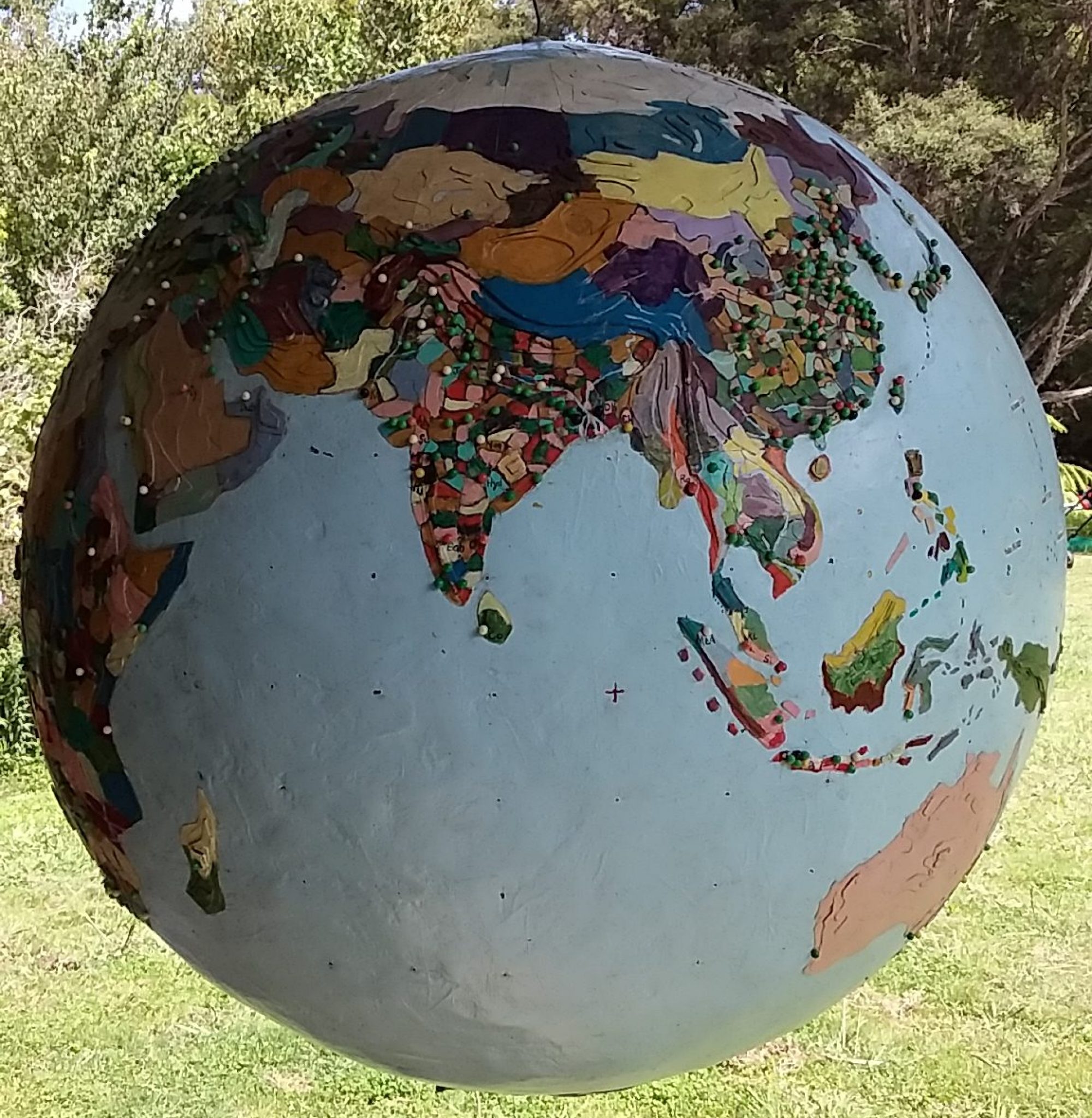Uruguay
Millisphere (noun): a discrete region inhabited by roughly 1000th of the world population. Around seven million people but anywhere between 3.5 and 14 million will do. A lens through which to observe human geography.
The tiny millisphere of Uruguay (2018 population just under 3.5 million) has a population growth rate that is tending towards zero. Because of emigration and a falling birth rate its population is remaining about the same.
Contested between Spain and Portugal, Spanish-speaking Uruguay became independent in 1828, after a gaucho uprising lead by Jose Artigas. During the military dictatorship of 1973-85 many Uruguayans moved to neighbouring Argentina, Brazil, and the United States and Spain.
At the height of the Cold War the US was involved with local military terror squads in many Central and South American countries. Democratic governments were replaced with military dictatorships and community activists, school teachers, journalists and union organisers were imprisoned or suddenly disappeared. The American ideology, at the time, portrayed it as a battle for world domination between the West, capitalism and religion on one side and the East, communism and atheism on the other.
During 1962-63 American journalist Hunter S Thompson travelled through South America and his pieces sent back to the National Observer provide some of the few criticisms of the cold-blooded American geo-political arrogance to be published in the US at the time. In retrospect Thompson was right.
In the 1960s the Tupamaros were actively opposing the military and police in Uruguay, and their actions included the assassination of an American FBI agent whom they accused of advising the Uruguayan police on torture.
One of the Tupamaro leadership, Jose “Pepe” Mujica, was imprisoned for 13 years in squalid conditions during the 1970s and 80s before being elected Uruguay’s 40th president from 2010 to 2015.
Known as “the Switzerland of the Americas,” Uruguay now rates first in South America for democracy and peace. Uruguay provides more troops per head of population to United Nations peacekeeping operations than any other country and it is rated first in South America for press freedom and the absence of terrorism.
Uruguay is a prosperous country by South American standards and has a sizeable middle class. Ninety-five percent of Uruguay’s electricity is generated from renewables (hydro and wind) and, like NZ, they have a lot of dairy cows – and dirty streams. Uruguay has a well developed education system with free access to university and liike New Zealand some graduates find their country too small to achieve their goals and emigrate.
Uruguay is noted for its historic separation of church and state and is roughly 60 percent Christian with 40 percent having “no religion” – Christmas is officially known as “family day” and Easter “tourism week.”
The Economist in 2013 named Uruguay its “country of the year” because of its liberal attitude towards same-sex marriage, abortion and cannabis legalisation.
Under the Mujica government it became legal to grow six plants and produce up to 17 ounces of cannabis per year, and they made it legal for pharmacies to sell up 1.4 oz of cannabis per month to any citizen over 18 registered as a cannabis user. Out of Uruguay’s 1,100 pharmacies only twelve have registered to sell cannabis and initially there were complaints about the low THC content of the state supplied weed. Traditionally being a cohort that doesn’t trust the state, Uruguay’s pot smokers have proved reluctant to register as cannabis users and the underground market continues, as do the illegal sales to foreign drug tourists.
One unexpected outcome of Uruguay’s cannabis law reform was that their banks started getting letters from American banks, including the Bank of America, demanding that they close down the account of anyone involved in the sale of marijuana. It transpired that the US “Patriot Act”, passed shortly after September 11th, 2001, made it illegal for any American financial institution to have anything to do with any other institution dealing in controlled substances, including marijuana.
It is estimated that more than one hundred billion US dollars of illegal drugs are consumed in America every year and yet American banks can dictate to Uruguay about their enlightened drug policy – a policy Uruguay has ostensibly designed to get drug traffickers out of the market!
